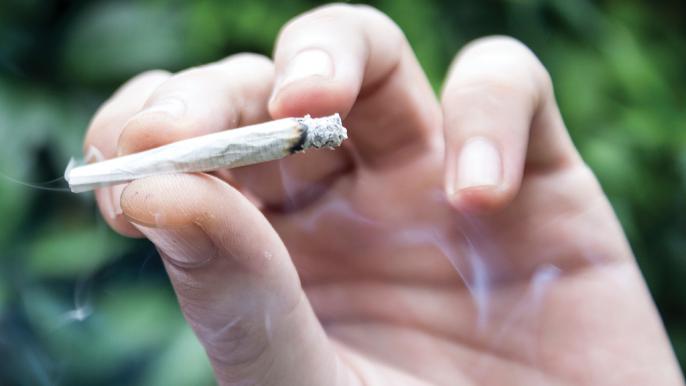
Printed headline: LOL: No Laughing Matter
Not many professions can be as precipitous as ours. Usually when we contemplate a forced grounding and losing our ability to fly for a living, we associate the license forfeiture with some medical condition. What many don’t realize is that actions in a pilot’s private life that are seemingly unrelated to aviation can cost one their pilot certificate.
The actual events that follow illustrate just how quickly one’s career can spin out of control.
Pilot A, a captain in a large flight department, had recently purchased a nice lakefront property in rural Texas. However, the neighboring property owner took issue with the boundary line and the discussion got heated. The angry neighbor then enlisted a large associate to add physical intimidation to the confrontation, which further deteriorated into threats of violence. Understandably feeling threatened, the pilot finally brandished his legal concealed-carry handgun for protection and the situation soon ended.
Sometime later, the pilot was flying a trip back from Canada and upon checking with Customs upon reentry to the U.S., the officer asked, “Captain, is this your proper name?” When the pilot so confirmed, the officer said, “Sir, please put your hands behind your back. There is a warrant for your arrest.”
It turned out the angry neighbor was directly related to the county prosecutor.

When he learned of the arrest, the director of operations gave the pilot a leave of absence to deal with the matter, promising, “Once you get this situation resolved, you will have your job back.”
Despite exhausting his savings on a vigorous defense, the pilot was convicted. That result cost him his ATP certificate due to that little-known clause in the FARs about being of “sound moral character.” Suddenly unemployable as a pilot, his career was trashed.
Slow forward more than seven years. That’s when the small county’s prosecutor was found guilty of official misconduct in office and the pilot’s conviction was finally overturned. Unfortunately, the director of operations was no longer with the pilot’s former company and the officials remaining would not acknowledge the promise to reinstate him. Well, he’s back in a flying position, but at a far reduced wage and enduring the financial setback of the whole ugly experience.
Pilot B and his girlfriend went to a professional basketball game to cheer their favorite team. However, their anticipated enjoyment was diminished by the loud-mouthed fan behind them whose nonstop consumption of alcohol fueled his abusive outbursts and offensive language. Fans sitting nearby asked that he temper his remarks a bit given the mixed audience with children, but that only wound him up further. Stadium security was nowhere to be found.
The pilot’s girlfriend shook her head in disgust at another comment, prompting even more diatribe. With that, the pilot turned around in his seat to look directly at the boor, who reacted by throwing a popcorn box at the couple. The pilot stood and the two men were instantly nose-to-nose. The gutter mouth thrust his finger toward the pilot’s nose, which he quickly deflected, but his own momentum caused the drunk to fall on to the adjacent stair, and he proceeded to tumble down the entire length of the steep concrete steps. He lay motionless at the bottom of the stairs until the arrival of paramedics who fitted him with a cervical collar, carefully placed him onto a back board then carried it to a waiting ambulance.
Upon diagnosing the fellow with severe physical injuries, emergency room personnel summoned police to take his statement. Later, the prosecutor filed felony charges against the pilot who, if convicted, will lose his ATP. Even if he negotiates a plea bargain down to misdemeanor assault, he’ll still be disqualified from obtaining a Security Identification Display Area badge.
Understandably, the pilot has retained an experienced criminal defense attorney at considerable expense to get a favorable resolution that would keep him out of jail and in the cockpit. At this writing, the case has been sitting on the prosecutor’s desk for over a year, leaving the pilot in considerable stress about his future.
On to Pilot C. He flew for a major air carrier but enjoyed towing gliders and operating his own aircraft when off duty. A former F-15 aviator, he could not resist the temptation to fly low over some private residences. One time, however, he conducted his flat-hatting over a neighborhood that was home to several FAA inspectors who worked nearby. Those feds watched the pilot’s repeated low-level antics and were soon calling his chief pilot.
As a result, not only was the pilot’s certificate suspended — a costly action to him — but his chief pilot strongly suggested that he sell his aircraft and cease any extracurricular flying.
Surprisingly, the airline kept him on its active roster; others might not since there’s potential risk to them if a pilot whose certificate was suspended is then involved in an incident or accident. Lawyers for an injured party will likely claim the airline failed its due diligence by allowing a pilot with a “history of noncompliance” to continue flying the line. The damage control to the company’s reputation would be difficult, especially in today’s 24/7 news cycle and hyper social media.
Finally, there’s the case of Pilot D. Also an air carrier pilot, he enjoyed flying a Stearman on his time off. One day two friends asked to skydive from the biplane. Unfortunately, the Stearman’s front seat could not accommodate two people. Not to be denied, the pair of thrill-seekers chose to hold on to the old trainer’s wing struts during takeoff — a dangerous idea to which the pilot astoundingly assented.
However, during climb the engine stopped, forcing the pilot to make a dead stick landing. The Stearman made it down OK and none of those aboard were injured. But the FAA subsequently learned about the two skydivers and their unsecured takeoff. That discovery resulted in the pilot’s certificate being suspended. And that resulted in his being terminated for failure to meet the position requirements, that is, possessing a valid pilot certificate.
The penalties for violating the FARs deliberately, especially for a profit motive, can result not only in losing one’s pilot certificate but one’s freedom as well. The aborted takeoff accident involving a Bombardier Challenger 600 at New Jersey’s Teterboro Airport (KTEB) in 2005 quickly turned into a criminal investigation by the Department of Transportation’s inspector general (DOT IG). His agents began to suspect that Platinum Jet, the operator, was routinely conducting charter flights without a Part 135 certificate. Investigators subpoenaed Platinum’s business and financial records, including banking transactions, and meticulously traced the company’s financial transactions.
One agent discovered Platinum had a tankering policy under which its pilots were to top off their aircraft’s fuel tanks with discounted Jet-A. This money-saving policy went to the extreme by requiring full fuel tanks even if the fuel was in excess of that required for the trip and caused the aircraft to exceed its maximum forward CG limits. To cover up this dangerous conduct, pilots manually altered the aircraft’s weight and balance graphs to create the false impression that they weighed substantially less than actual and were within their CG limits.
It was further discovered that Platinum officials instructed its pilots to falsify logbooks by recording their flights as private flights rather than commercial charter flights. All totaled, Platinum flew in excess of 85 unauthorized commercial charter flights while taking in more than $1 million.
Those discoveries resulted in a 35-page indictment alleging that Platinum CEO Michael Brassington and Platinum pilot Francis Vieira lied to NTSB investigators and provided falsified reports in an attempt to conceal the facts that Platinum carried passengers on unauthorized flights and exceeded weight limits.
Just prior to trial in September 2010, Vieira admitted to U.S. District Judge Dennis M. Cavanaugh that he flew dozens of illegal flights for Platinum, many of which were for famous athletes, musicians and other well-known individuals. He also admitted that he falsified logbooks to conceal the flights and that on more than two dozen occasions he falsified weight and balance reports. He was subsequently sentenced to six months in prison and an additional six months of house arrest. Two months later, a federal jury convicted Brassington on 16 criminal counts including endangering an aircraft, conspiracy and false statements.
Thereupon U.S. Attorney Paul Fishman said, “The defendants chose to commit crimes in pursuit of profits over public safety. A pattern of fraud and deception is not a business plan. Today’s verdict confirms that there are consequences when you break the law to boost your bottom line.”
The FAA’s compliance philosophy is characterized by a willingness to forgive mistakes but an intolerance for falsification on FAA documents. FAA Order 2150.3B., the FAA Compliance and Enforcement Program, states, “In general, the FAA considers the making of intentionally false or fraudulent statements so serious an offense that it results in revocation of all certificates held by the certificate holder. Falsification has a serious effect on the integrity of the records on which the FAA’s safety oversight depends. If the reliability of these records is undermined, the FAA’s ability to promote aviation safety is compromised.”
An 18-month investigation in July 2003 by the DOT and the Social Security Administration in Northern California that looked into licensed pilots who were receiving disability payments from the government but were simultaneously claiming to be medically fit to fly led to charges by federal prosecutors against 46 pilots, including four with ATP certificates; seven held commercial certificates; 28 had private certificates and seven were students. According to court documents, the pilots were charged with either making false statements to a federal official or delivering to a federal official a false written record.
A charge of lying to federal authorities carries a penalty of up to five years in prison and a $250,000 fine. A charge of falsifying records carries a criminal penalty of up to one year in prison and a $100,000 fine, not to mention the likely revocation of a pilot’s ratings and certificates.
Charles Lee Jr., an assistant DOT IG, said the reviewers first focused their investigation on pilots who were receiving disability payments for illnesses like paranoid schizophrenia, bipolar disorder and disabling heart conditions. One case even involved someone who exhibited severe suicidal tendencies.
“The fraud and falsification allegedly committed by these individuals is extremely serious and adversely affects the public interest in air safety,” said Nicholas Sabatini, who at the time was an associate administrator at the FAA.
The sudden, permanent loss of a dream career along with the income it provided can cause extreme stress for the individuals and their families. The path to a professional flying career involves a considerable commitment in terms of time, study, practice and money. Very few who succeed in achieving such a position are prepared to “start all over” in a different career, particularly since doing so would involve a diminishment in both status and income. To avoid such a daunting fall from grace, carefully manage your personal life as well as your professional activities and maintain a “sound moral character” throughout.
